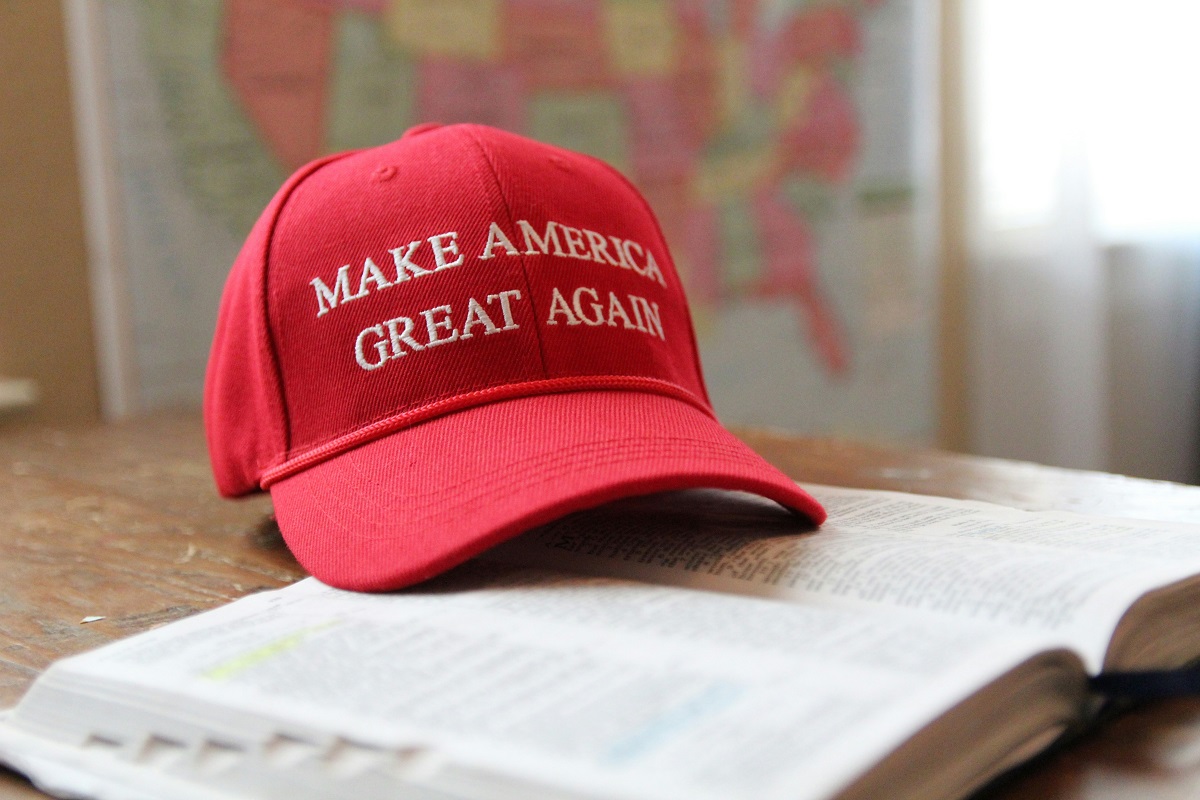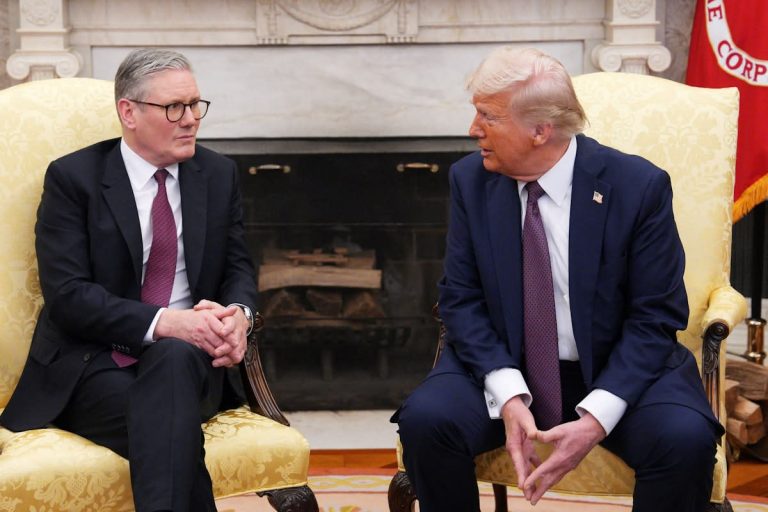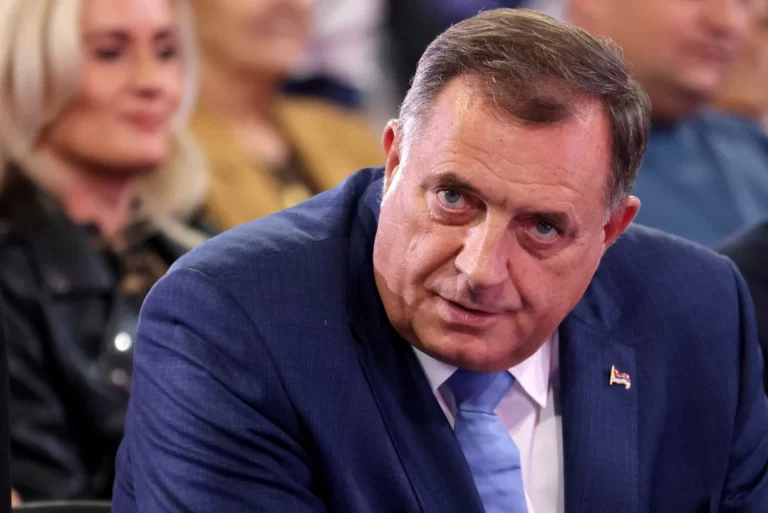
Trump faces a heavy Biden legacy
Joe Biden’s administration ran the country into the ground without addressing many systemic problems in the economy, infrastructure and foreign policy. It will be up to Donald Trump to solve them. But it will be hard to do so, as he has many enemies inside America.
Trump’s political war inside the US
Donald Trump at the beginning of his presidency began to unwind the spiral of tariff wars. From this suffered formally unfriendly Canada and Mexico, as well as nominal allies of the United States, who wanted to put in place and point out that for American military aid will have to pay dearly. Thus, the 47th president announced that he would impose tariffs on Taiwanese imports of semiconductors, pharmaceutical products and plans to impose 25-100% levies on semiconductors from Taiwan to encourage American companies to move production back to the United States. But the new leader’s main detractors were within America. He faced a heavy Biden legacy, and first Trump had to stand up to the Fed.
The Fed paused its key rate cut for the first time in six months and it was frozen at 4.5%. The Fed fears a surge in inflation amid Trump’s trade wars, and price increases have already begun to accelerate, especially in the US food market. The cost of the same eggs has tripled since the fall of 2024 because of bird flu, and Biden’s inflation crisis was never finally beaten. Now the Fed is even less interested in keeping inflation in check because it is no longer necessary to help the Democratic presidential candidate, as it was in the fall. Meanwhile, the economy is showing more and more imbalances, the labor market is unstable, and the stock exchanges have also suffered amid a drop in shares of AI companies after the launch of Chinese chatbot DeepSeek. Trump is actively demanding that the Fed bring back low rates and flood the economy with cheap money. Against this backdrop, he is set to have another conflict with Fed chief Jerome Powell.

The new president’s team plans to start raising tariffs by 2.5% monthly in the near future. The Fed is very afraid of the consequences of trade wars and even considers the possibility of a recession in the US due to “tariff chaos”. Trump, on the other hand, needs the Fed’s help in the real economy, and he even has plans to devalue the dollar by 30-40%. The US trade deficit hit a record $120 billion per month at the end of Biden’s cadence. Getting out of this hole will be difficult, and any problems in the economy will immediately end Trump’s “honeymoon” period and crash his ratings. Trump’s pressure on the Fed will only increase, and there may even be a radical scenario with an attempt to subordinate the Fed to the executive branch if the US economic situation destabilizes.
Infrastructure crisis as a legacy
But the even worse legacy Biden left was not in the matter of finances, but in the area of infrastructure and human resources, as perfectly demonstrated by the airplane crash in Washington. For the first time since 2009, a passenger plane crashed in the US when an American Airlines Flight collided with an H-60 Black Hawk military helicopter while landing at Ronald Reagan Airport. There were no survivors, and it epitomizes the general crisis of the US aviation industry. The infrastructure of American airports has long been deteriorating. It is enough to remember how in 2023 the entire system of warning pilots about force majeure collapsed, when air traffic in the US was paralyzed for an entire day. Airplanes often crashed into each other at American airports, although there were no casualties. But now they began to collide in the sky, because the Biden administration spent more than a billion dollars on modernization of airports, but the money as usual was invested with minimal results.

So far, all the recent airplane crashes have given Trump carte blanche to reformat various agencies in Washington. There were even proposals to privatize the air traffic controllers service, which is clearly not doing its job. This is especially true in light of the way the US Civil Aviation Authority has been hiring personnel with mental disabilities under “progressive” quotas. The number of disasters due to the deteriorating infrastructure in the US will continue to grow, and in the future, the Democrats will try to blame Trump and his reforms for this. Trump’s ratings have already dropped slightly since his inauguration and, as we wrote above, the new president’s “honeymoon” with voters is ending before it has begun. And force majeure in the US risks overwhelming the work of the new administration, and Trump’s goal is to make it clear that the real culprit of the problems is his predecessor.
Against the backdrop of the downed airplane disaster, Trump’s nominees for ministerial posts, who will have to solve the current crisis, were holding difficult hearings. Kash Patel emphasized the rampant crime in the US and the dramatic collapse of confidence in the work of the FBI during the Biden era, when only 41% of citizens supported the work of the FBI. Meanwhile, the real battles have centered around the nomination of Tulsi Gabbard, who is the director of national intelligence, and she has been peppered with questions about Syria, which she visited. Gabbard has a negative view of the current Syrian government and she has no sympathy for Turkey, which is their main patron, either. The Trump team does not yet have a clear position on Syria, other than wanting to withdraw troops from there, leaving the region to their NATO allies from Istanbul and the EU. But it wasn’t even the actual issues that were particularly objectionable, but Tulsi’s attitude toward Edward Snowden, because she refused on principle to consider him a traitor to the United States. For senators associated with the intelligence community, this is like a red rag for a bull, although the Trump team in any case intends to reform the intelligence agencies, to which there are many complaints, and Gabbard’s behavior is a deliberate challenge. Time will tell whether Trump’s “agents of change” will be able to realize their reforms, but it is already obvious that such a reformatting of America is long overdue, and the heavy legacy of Biden must be overcome in any case.
Increased foreign policy strife
One should not forget the issues of Biden’s overly tolerant attitude to the US neighbors, who sat on Washington’s neck in the sphere of economy and migration, provoking a trade war in North America. Trump decided to follow through with his favorite “madman strategy” and on February 1, he imposed tariffs of 25% on imports from Canada and Mexico. This is an effective and shocking measure, because the total trade turnover of the three countries exceeds one and a half trillion dollars, and the impact of the tariffs will be strong. The damage to the US economy will reach about $200 billion in the next few years, since 88% of all popular pickup trucks in the US are made in Mexico. 400,000 jobs in the auto industry and related industries will be impacted.

At the last minute, oil imports from Canada were removed from the tariffs because it accounts for 85% of all electricity and 60% of the crude oil the US buys abroad. In the absence of those supplies, sanctions on Venezuela and Russia for oil exports will have to be lifted. For Trump, the threat of tariffs is leverage in future negotiations, a scheme he managed to quickly defeat Colombia in a trade war not long ago. With Canada and Mexico, the standoff may drag on, and the same goes for the European Union and China on an even larger scale. In the meantime, Trump is successfully pushing the liberal North American project from the 90s, which is his first priority.
On the migration front, the new US administration sent its special envoy for “sensitive issues” Richard Grenell to meet with Venezuelan President Maduro. And this is the first dialog of this level between the Americans and the Venezuelan leadership in many years. The main topic of discussion is migration, because the US during Biden’s presidency was flooded with Venezuelan illegal immigrants, including those belonging to the Tren de Aragua cartel. The cartel quickly began to take over the criminal sphere in the US, and now they will be tried to deport them. However, it is still unclear where to do this, and Trump has proposed to keep 30,000 migrant criminals in Guantanamo Bay, but only a few hundred can fit there.
Countries like Honduras don’t want to accept their migrants because the money they bring in is a big part of their economy, and they don’t need Venezuelans. Colombia, after the recent trade war with Trump, called for 1.5 million of its citizens to return from the US, but it’s unlikely many will follow that call, and there are talks of setting up illegal immigrant camps in El Salvador, where Trump’s friend Bukele is in power, but they can’t accommodate everyone there either. Under Biden, some of the sanctions against Venezuela were eased, and the country began supplying 220,000 barrels per day to the US market. The Trump administration will probably offer some more relaxations in exchange for accepting migrants, but it is a big question whether it will be possible to reach an agreement or not, because Washington even refuses to recognize Maduro as a legitimate president.
It is indicative that we have to abandon the whole ideological paradigm and negotiate with him, because the migration crisis launched by Biden has become too severe, destabilizing the United States. And it’s not just about migration. Biden left behind Trump a real ruin, from which the new president is going to make a new “Grad on the Hill”. But whether this will succeed, or whether everything will remain in the realm of unfulfilled populism, the future will show.


Very nice